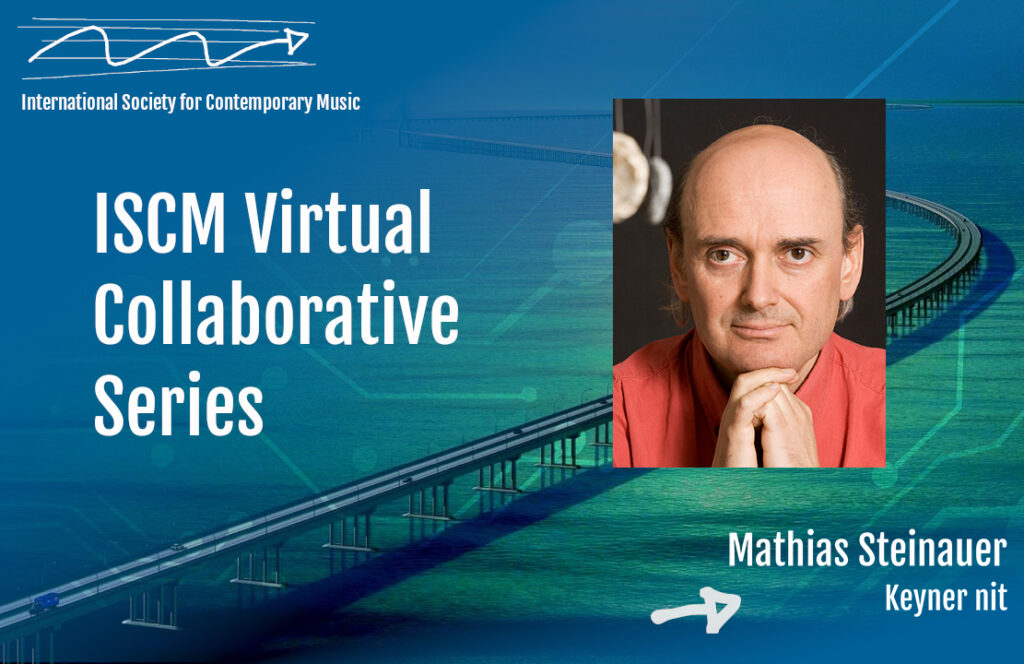Mathias Steinauer: Keyner nit

Mathias Steinauer was born in Basel in 1959 and studied piano, composition (Robert Suter / Roland Moser) and music theory (Wolfgang Neininger) at the Basel Academy of Music. From 1986 until 1988, he studied composition with György Kurtág in Budapest. Since 1986, he has taught music theory as well as courses in new music and composition at Zurich University of the Arts, and in 2004 he was the artistic director of the ISCM World Music Days „trans_it“. He has performed and/or lectured at various schools of music, symposia and festivals in many European countries as well as in Azerbaijan, China, Brazil, the USA, and Japan. Mathias Steinauer currently lives in Ticino, Switzerland.
About his opera Keyner nit, the composer writes:
Hunger, here and now, is largely suppressed: one is(s) satiated. So our greed is directed toward secondary goals: we dream of money, career, gourmet restaurants, love, sex, information, cult and culture. Or, to put it another way, we are “L’homme machine”. At least: cannibalism has become rarer… Nevertheless fear is breathing down our necks! Because the real hunger of the others is not exactly without danger! And: How fast will the filled up abysses of the human being will break open, once we run out of oil? – Let us take a look at yesterday and tomorrow, at dictatorial and anarchic conditions, at an omnipresent hunger and mischievous “democrats”. Hunger and mischievous attempts at “democratization”, where noble art and lofty thoughts only play a role in dreams. Exaggerated greed for power and greed, longing for lustful debauchery or romantic love, artistic craving for recognition, hunger and a simple urge to survive are the driving forces of a scenario on two levels.
Thus Keyner nit is on the one hand a crude and hearty scherzo, a grotesque fairy tale from a fictitious pseudo-medieval period, where famine and the Constitutio feudis determine life and where fine layers of civilization are visibly crumbling. It tells of familiar habits in olden times: the hunger and the feeding,
anarchy and trust in God, lust and morality, and of how rule partly consumes itself, partly executes itself, partly (-)murders itself, so that a system breaks down before it can even be established. An almost anarchic ending records “dasz keyner nit das Sagen hat!” Appearing at this level are: A Marconte (neither
Marchese nor Conte), a newly married legendary upstart, with three eyes. Vargina, his married and eternally unsatisfied wife, and the most beloved daughter of the king. The rebellious subjects, a few run-down soldiers, as well as Friar Kapuzo. As a freshly minted feudal lord, the Marconte, after a long and deprived wandering, wants to move into his half-ruined hereditary castle and squeeze the peasants with taxes. Everyone is hungry, and not just for ordinary pork sausages… But the Marconte and his servants have not reckoned with Migone, the shrewd leader of the villagers. In one respect, this anarchic scenario is also about our is also about our times: Everyone wants to be in power, but no one takes them seriously… Keyner nit is also a dream play: it dreams of unfulfillable wishes and existential anguish. It fantasizes about the other end of hunger, i.e. about infinitely exquisite delicacies, or about how the master chef Gaston Ouralphe in his gourmet kitchen. Gaston Ouralphe saves himself from the clutches of the devil in his gourmet kitchen by means of his art. Finally, there are dreams of purely spiritual nourishment: of philosophical monologues of the de Sade antipodean Julien Offray de La Mettrie (1709-51), a voluptuous man who has been eating poisoned pâté. Keyner nit is not a purely narrative opera: while certain parts deliberately and pleasurably allow for a narrative opera for the purpose of hyperveristic climaxes of affect, on the other hand, still images or oratorio-like moments are also made possible (slow motion, time standstill, time layering). Besides a unifying system of intervals and coloring, the discreet use of various pseudo-stylistic borrowings concept! This is underlined among other things by the instrumentation, which uses obsolete, old instruments imitating U-music instruments: Hammond organ and clarinet. The title Keyner nit refers to a collection of nonsense stories of the Italian novella literature of the fourteenth century, who also coined the meaning of the word: a collection of dissolute, satirical, hopelessly convoluted tales.
live recording with: Katia Guedes, Bini Lee Zauner, Catriona Bühler, Michael Hofmeister, Javier Hagen, Robert Koller, ensemble für neue musik zürich und Dominik Blum, Hammond/Clavinet Live-Zeichnungen von Ulrich Scheel Sven Holm, Regie Jürg Henneberger, musikalische Leitung Elisa Limberg
